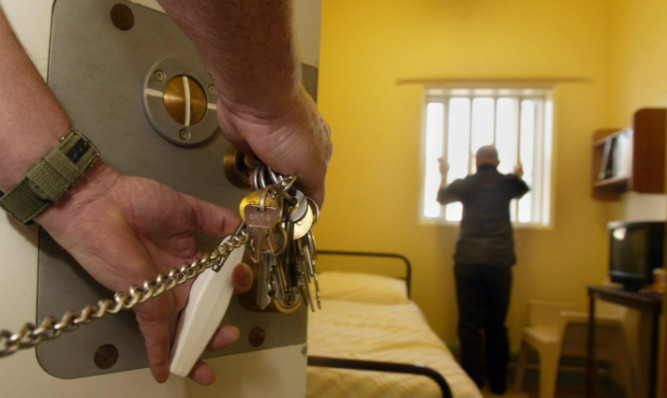Proposals to end the right of sex offenders and other serious criminals to get out of jail half way through their sentences could be held up following a series of concerns raised by MSPs and experts.
Holyrood’s Justice Committee could seek additional time to scrutinise the Prisoners (Control of Release) Bill due to the extent of the amendments required.
Justice Secretary Michael Matheson has pledged to strengthen the Bill to ensure eligable criminals are still monitored upon their release, even though they have served their full sentences.
This is in response to concerns that prisoners could “max-out” their sentences to avoid “intrusive” supervision when they get out, a situation described as “cold release”.
Conservative justice spokeswoman Margaret Mitchell has refused to back the Bill, saying it does not go far enough even with the amendments which will only make “a bad bill slightly better”.
The rest of the committee backed the Bill in principle, but have asked for sufficient time to scrutinise the amendments and satisfy concerns of experts and the general public.
The committee has also noted concerns by the Scottish Human Rights Commission that the Bill’s the human rights impact statement is “inadequate”, particularly in regard to the availability of rehabilitation programmes.
It fears demand for prison rehabilitation programmes may outweigh supply and the committee has recommended an independent assessment and a review of the statement.
Mr Matheson has advised the committee that, in light of concerns raised in evidence, the Scottish Government would bring forward proposals guarantee that all long-term prisoners are subject to a minimum period of compulsory supervision in the community following release.
Committee convener Christine Grahame said: “The Committee welcomes the aims of this Bill and notes the new Cabinet Secretary’s willingness to act on evidence heard from witnesses who questioned whether the provisions in the original Bill would meet the Government’s objective of improving public safety.
“We were pleased that the Cabinet Secretary outlined his proposals to amend the Bill at Stage 2. In our report we have highlighted the areas where we require further detail to help us consider those amendments, and have requested further information on the cost of the new provisions and how these will be resourced.
“As a Committee we look forward to continuing to scrutinise this Bill as it continues its Parliamentary passage, ensuring that the views of witnesses, and the Bill’s core principles of reducing reoffending and improving public safety, are reflected in its final form.
“Accordingly, given the scope of the proposed Government amendments, we may seek additional time for scrutiny at Stage 2.”
Ms Mitchell said: “These plans would only impact on 3% of the prison population – those who are serving five years or more.
“Michael Matheson has tried to make a bad bill slightly better, but it goes nothing like far enough.
“We know the real problem with automatic early release is with those who are serving shorter terms, but that hasn’t been addressed by the Scottish Government.
“We need clarity and honesty in sentencing, and as it stands, this Scottish Government plan does not deliver that.”
A Scottish Government spokeswoman said: “The safety of the public is an absolute priority for this government and we welcome the support of the Justice Committee for our plans to end automatic early release for all long-term prisoners in Scotland.
“Releasing prisoners early who have been assessed as dangerous, as happens under the current system, is wrong and we firmly believe that prison remains the most appropriate place for the most serious offenders.
“We will also be introducing a guaranteed period of supervision for each long-term prisoner leaving custody to assist rehabilitation and help them reintegrate into communities. We now look forward to the Bill progressing through the full parliamentary process.”
A spokesman for Mr Matheson said: “The last Tory government introduced automatic early release to all prisoners in 1995 and by voting against the Stage 1 report they’re voting against our plans to end it for all long-term prisoners in Scotland.
“The Prisoners (Control of Release) (Scotland) Bill is a concrete example of the Scottish Government delivering on our justice commitments to protect our communities. We firmly believe that prison remains the most appropriate place for the most serious offenders.
“Even their own UK Justice Secretary, Chris Grayling, accepts that this is not something that can be ‘changed overnight’.”
